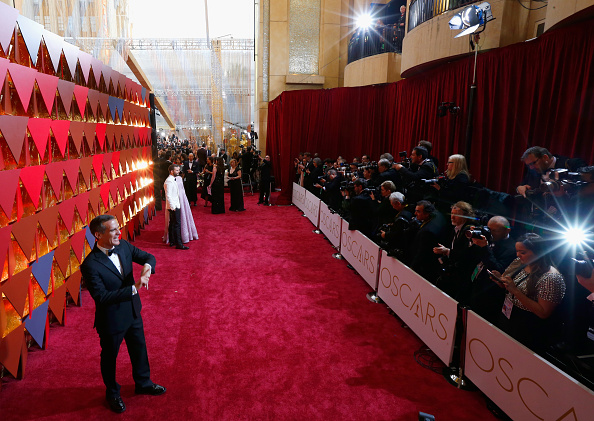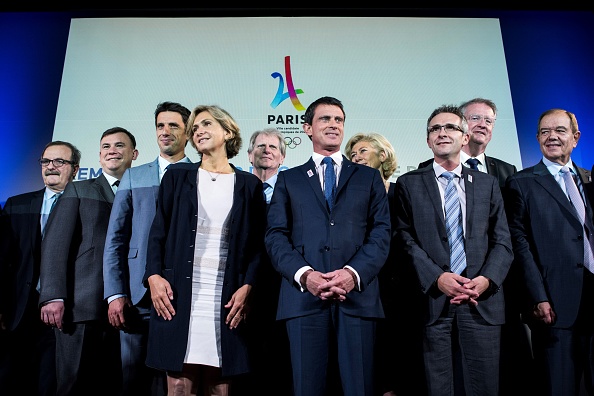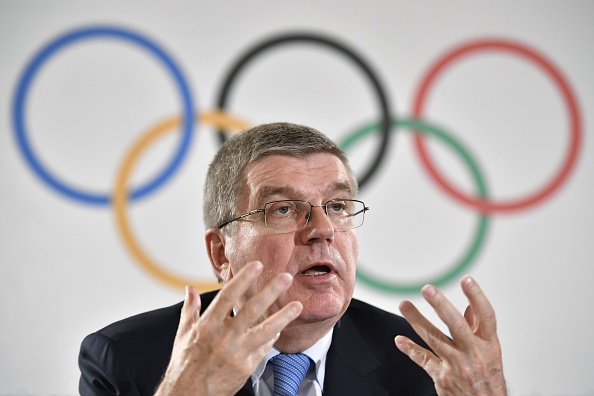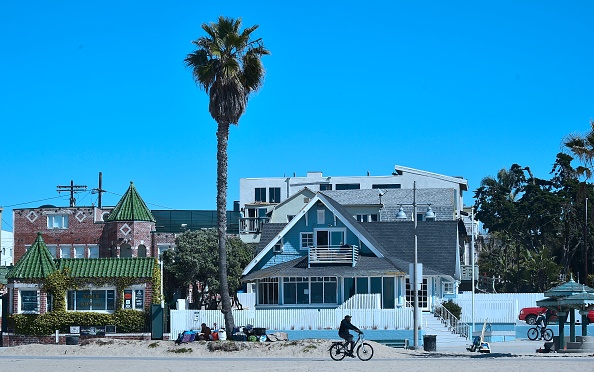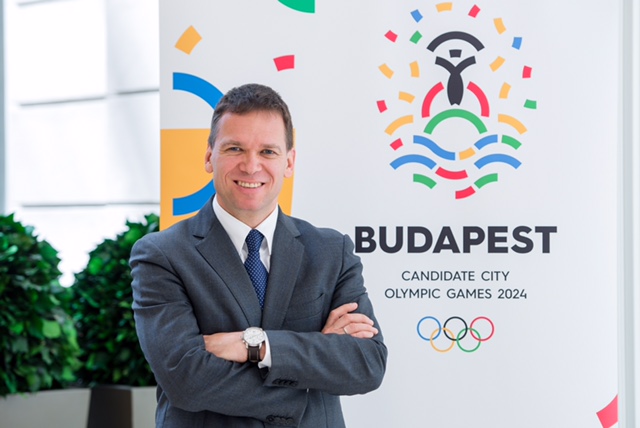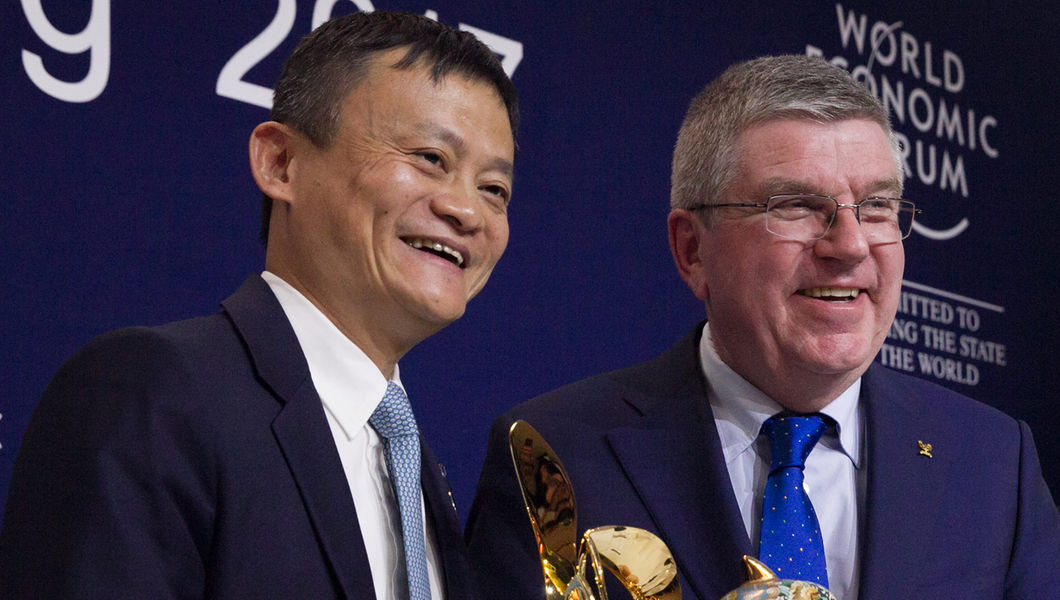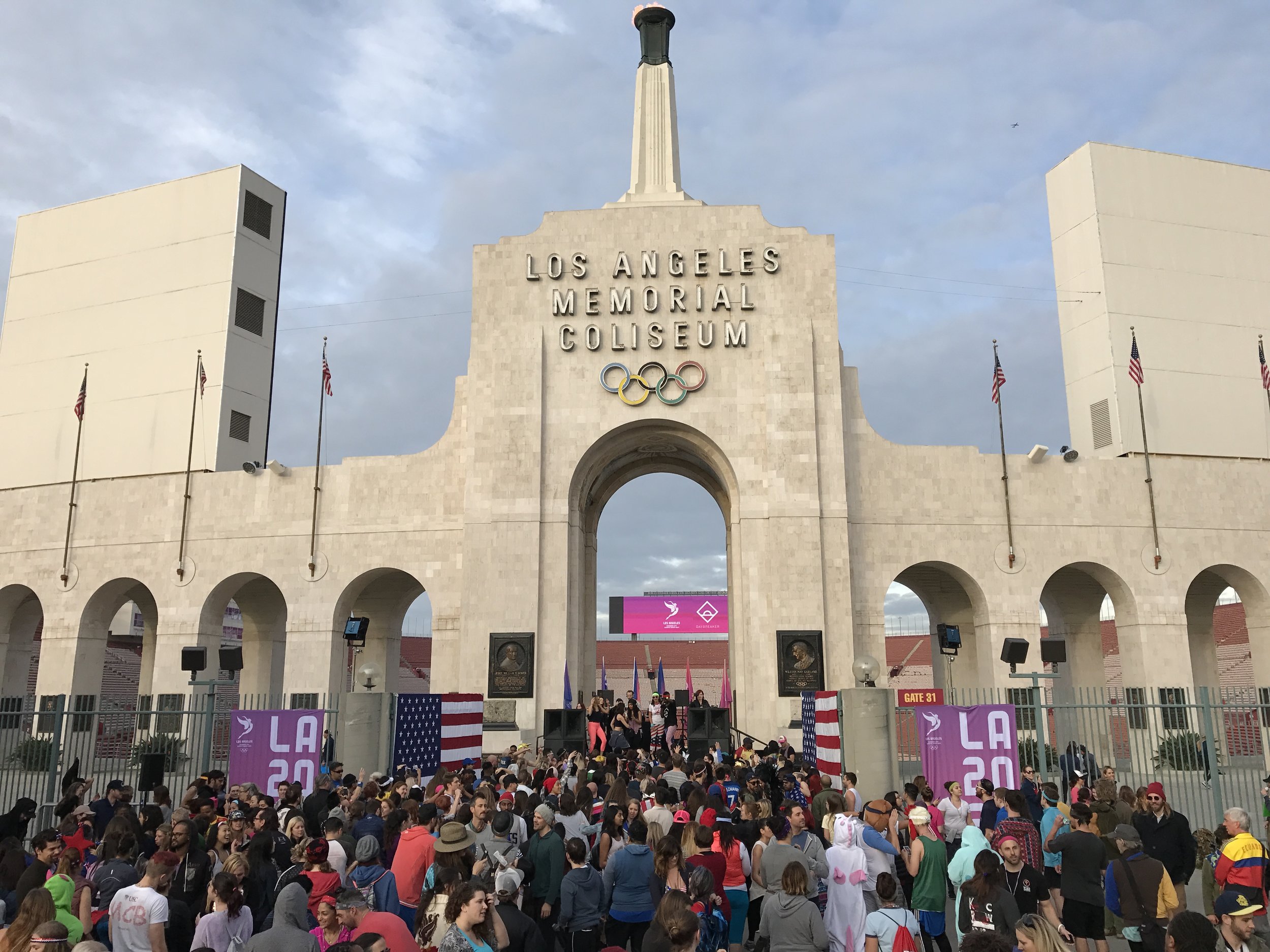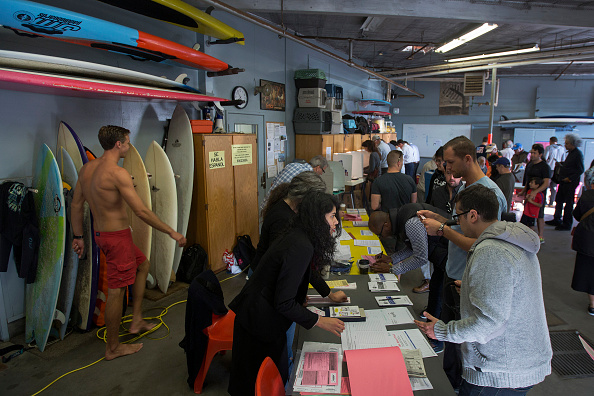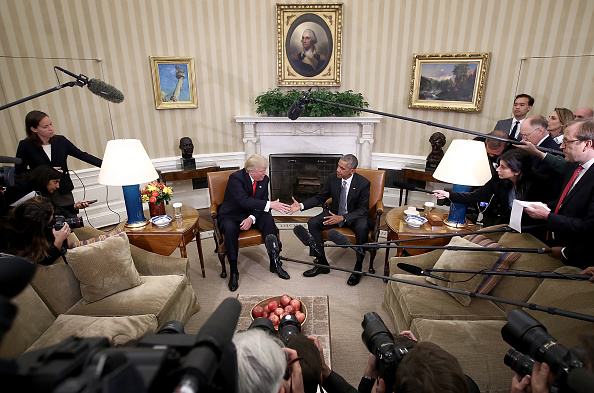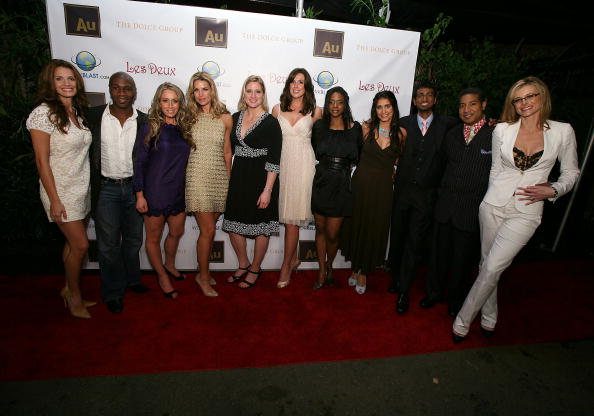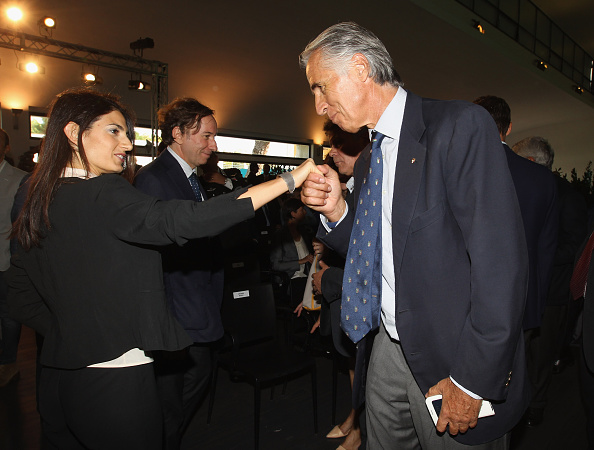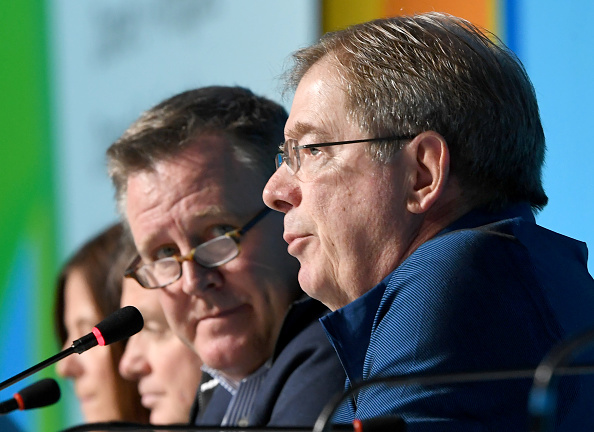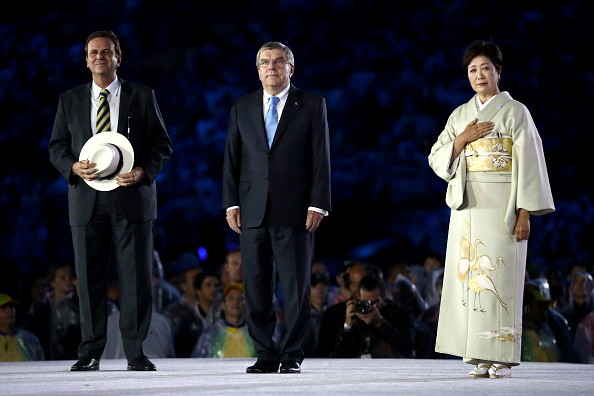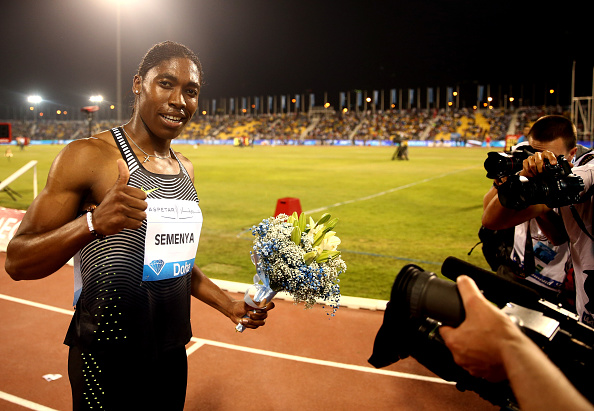From the Department of Olympic Smack Talk, and you would think that International Olympic Committee president Thomas Bach’s much-vaunted Agenda 2020 40-point purported reform plan would have taken care of this kind of thing:
Tony Estanguet, the co-president of the Paris 2024 bid, was giving an interview to the Reuters correspondent Julien Pretot in mid-December when the topic turned to politics, French and American.
“We are supported by the city,” meaning officials in the municipality of Paris itself, “the region and the state, who are not on the same political side,” Estanguet said, and no problem with any of that.
“We’ve met several candidates,” a reference to the forthcoming French presidential elections, “and we have the feeling that they all support the bid.” Also no problem. But, then: “There is stability, which may not be the case for Los Angeles, who have a municipal election,” scheduled for, as it turns out, March 7, meaning Tuesday.
Dude. Seriously.
There wasn’t a cloud in the sky Monday in Southern California ahead of Tuesday’s balloting, at which LA mayor Eric Garcetti is widely expected either to be re-elected outright or put in solid position to do so at the May 16 general election. Everything seemed pretty, you know, stable. Even the usually crabby LA Times said a few weeks ago in a piece on the mayor that the city is in the midst of a “renaissance” and in a separate endorsement offered this: “Garcetti is the best — really, the only — choice on the ballot.” Garcetti faces 10 opponents — one nicknamed “Zuma Dog,” another nicknamed “Pinky,” typical LA, typical California — so it’s unclear whether the mayor avoids the May runoff simply because a ballot with that many people is a ballot with that many people.
At any rate: you wonder why Agenda 2020 is in most precincts viewed as rhetoric without reality?
Politics, whether the mayoral election in Los Angeles or this spring’s seemingly volatile presidential race in France or the race for the 2024 Games pitting LA against Paris, is politics.
Though there have been stabs at implementing the reforms, the 2024 campaign marks the first Agenda 2020 race.
In December 2014, the IOC members unanimously bought into Bach’s 40-point plan.
As Bach emphasized in a far-ranging Q&A last week with a German-language outlet, “The Olympic Agenda [2020], initiated by me, [will] for the first time [be] fully applied to the Summer Olympics in 2024.’
To be fair, Bach’s instincts are solid.
The package could — should — have proven itself to be way ahead of the power curve.
To date, however, Agenda 2020 has been mostly noise devoid of substance.
Just words on a page.
In Lima on September 13, when the members make their 2024 choice, the question is whether Agenda 2020 will mean anything more than the paper it’s written on.
Put another way:
Do the members genuinely care about the future, about the strategic vision of the IOC?
The core issue is whether they get — that is, whether Bach can make them understand — that for Agenda 2020 the time is now or never.
The IOC is a multibillion-dollar global entity with a variety of stakeholders. Its primary goal is spreading its values — respect, excellence, friendship— through sport, and particularly its franchise, the Games. Its key mission is figuring out how to stay relevant with its key audience, teens and 20-somethings.
All this makes 2024 a classic case study, and if September 13 in Lima were not a secret ballot but a straightforward corporate-way decision, the sort of thing McKinsey or Bain or Deloitte get hired all the time to assess and provide consulting-style strategic roadmaps for, this would be a no-brainer.
Paris would simply be more of the same — like Athens, Beijing, London, Sochi, Rio and, now Tokyo, government-run bids and follow-on organizing committees that see huge cost overruns skyrocket into exorbitant billions, the No. 1 shock to the system the reputed $51 billion associated with the Sochi 2014 Games.
Paris needs to build an athletes’ village, along with media housing and a swim complex. These three cost centers have repeatedly proven problematic, and the history of recent government-underwritten Games — see the list over the last 20 years from the previous paragraph — shows definitively that the bills inexorably get fat.
When a 17-day sports party ends up costing $51 billion, $40 billion, $30 billion, $20 billion or even *just* $15 billion, you can trace a direct logic line: this is why taxpayers across Europe are now in revolt against the IOC.
Too, this is why, increasingly, social media and the threat of referendum make for an existential threat to the establishment across Europe, in particular the juicy target that is the IOC.
LA, a privately run bid (and, like 1984, Games), stands out as the change option.
Now is precisely the time for that change.
The model of Games as urban development catalyst is — done. That is over.
To reiterate:
That is exactly why taxpayers are so completely and thoroughly pissed off. They don’t want the Games to be a blank check anymore for roads, airports, metro lines and more.
Bach knows this. Again, the logic line: the drafting and enactment of Agenda 2020.
To be explicitly clear, the president has not — and will not — play favorites in public in this 2024 race. He cannot afford to be seen to be favoring Los Angeles or Paris, and will not be seen favoring either. He has not, will not express a position and nothing in this column should be inferred or implied that he has, or will.
That said, he assuredly has a vital interest in making concrete the Agenda 2020 reforms.
He clearly has some work to do in this area — let’s explore — but you can see he is trying to find ways.
In that German-language interview last week, Bach tried out, again, this trial balloon:
“Without Olympic Agenda 2020, we would not have a single candidate for the Games in 2024.”
This is just not true, not helpful and that balloon should be let go.
The truth is that Bach had five candidates when the race formally kicked off in September 2015, and three have already fallen by the wayside: Budapest, Rome and Hamburg.
Agenda 2020 did not save them. If the reforms were of demonstrable utility, maybe the IOC could have helped the respective bid committees better press their cases. But no.
The further truth is that Los Angeles does not in any way, shape or form need Agenda 2020.
Just the opposite: the IOC needs LA to make Agenda 2020.
That IOC evaluation commission team that’s due in town in April is going to find what — that Los Angeles is capable of hosting the Games? Duh.
Let’s explore another tack, please, Mr. President.
“We have to reduce the planning costs,” Bach said, meaning the bid costs. Therefore, “Every facility on which a world championship or a World Cup took place is considered approved. This will determine the discussions of the next time in the IOC.”
This is flawed, too.
Like Staples Center in downtown LA, which has not played host to a world championship but puts on Lakers, Clippers and Kings games on a nightly basis, would have to be approved — but Kazan, Russia, which put on the 2015 world swim championships in a temporary pool in a soccer stadium, would be automatically in?
Beyond which:
The cost of bidding is a problem but it is not the problem. Let’s say you’re a European government. Bach also said, “Europe is the core continent of the Olympic movement. It would not be wise to ignore this,” and as an aside this is indisputably the case but also not the sort of declaration that means going somewhere else (Asia, Australia, the Americas) is mutually exclusive.
Anyway: let’s say a bid campaign runs to the range of 75 million euros. If your federal budget is — pick a number — 2 trillion euros, 75 million is a sneeze.
From the government finance minister’s office, that is.
Not, though, for the taxpayer or the local community organizer. That is an entirely different prism.
Again, the challenge is not those 75 million euros. It’s the $51 billion, $30 billion or $15 billion in infrastructure costs tied to the Games.
This is the thing that must be confronted.
It is the collection of white elephants in the room.
If you prefer, the Olympic Voldemort. Who dares speak out about this thing?
OK, here goes:
These infrastructure projects are the primary drivers, the elemental reason that — since the transformative makeover of Barcelona for 1992 — governments worldwide have sought the Games, because an Olympics as public-works catalyst comes with a fixed seven-year deadline.
In the real world, presidents, prime ministers, governors or mayors have to deal with wonky parliaments or state assemblies or city councils for 20, 30 or 40 years to try to get stuff done, if then.
Bach, same article, trying to have it both ways, acknowledging that the entire thrust of Agenda 2020 is to move away from these projects and yet:
“You have to see the whole picture. This is like in Munich in 1972. Munich might not have a subway today without the Olympic Games. And Rio would not have a functioning transport public transport system. Before the Summer Games, 18 percent of citizens in Rio had access to a proper urban transport system. Now, 63 percent. Tens of thousands benefit from the legacy of the Games day after day.
“In addition to this, a newly designed harbor district, a few hotels with their jobs, the Guanabara Bay is not perfect but much clearer than before because the introduced dirty water is now clarified. The handball hall will be converted into schools.
“The mayor of Rio recently said something that is equally true of the IOC: it was never claimed to be able to solve all political and social problems in Rio with the help of the Olympic Games. But through the Games, investments could be made, investments the inhabitants of Rio could only dream about for 50 years.”
See the conflict?
The problem is, genuinely, the IOC can’t figure out — without going to Los Angeles for 2024 — how to bring Agenda 2020 to life.
From the same article, Bach sought to explain how, after the passage of Agenda 2020 back in December 2014, the IOC almost immediately sought to pressure — my words, not his — the Korean organizers of the PyeongChang 2018 Winter Games to consider moving the bobsled track to Japan.
That would have given the IOC something to show the world. Agenda 2020! See! It works!
“This almost led to an insurrection,” Bach said.
To be honest, this sort of belittling observation does not reflect well on the president or the IOC nor does it constructively serve anyone’s interest.
Facts:
When the IOC approached the Koreans, it was three-plus years after the July 2011 IOC selection for PC for the 2018 Games. The bobsled track was already well past design and into construction. In practice, sunk costs were considerable. Plus, hundreds of people were at work on a job site.
The IOC was asking the Koreans to consider going to Japan — Japan ruled Korea from 1910 until 1945 — meaning Nagano, site of the 1998 Winter Games. Would there be refurbishment costs for the Nagano track? If so, how much? How much would it cost to transport and house athletes? What about TV? What about a range of other issues?
In the end, timing and financial issues made it all, roughly, a wash. So: why would the Koreans invite domestic fury by 1. having to essentially bow to wartime masters 2. on a project, the Winter Olympics, of immense domestic pride, just like 1988 in the summer in Seoul 3. and being made to appear inferior by far-away Europeans on, of all things, precisely the sort of thing Koreans typically do extremely well, a design and manufacturing project?
Better: how could the IOC (first word “International”) not have taken into account these factors in a seemingly blind rush to make something of Agenda 2020? When these Winter Games were in — 2018? Which is two years before (Agenda) — 2020?
Bringing Agenda 2020 forward since:
For Tokyo 2020: the Japanese bid, won in 2013, promised all-in costs of $7.8 billion. Now estimates out of Tokyo are floating around the $25-30 billion range. (Back to PC 2018 for a note of irony: the Koreans in 2014 were suddenly supposed to agree that the Japanese way would be superior because — why?)
For Beijing 2022: the Chinese, $40-billion spenders for 2008, must build a high-speed rail line from the capital up to the mountains, where there is no snow. To keep the financial reporting numbers down, the Chinese have said they have no intention of disclosing the costs of that rail project as part of Olympic spending.
If you wrote all this as fiction — who would believe it?
But it's real, which is why Agenda 2020 — so far — is not.
The Olympic movement, the interviewer in that German-language Q&A piece, said to Bach, “has the impression of the monstrous.”
“Olympic Agenda 2020 will pay for the organization of Games and sustainability,” Bach said. “What we have not foreseen is the change in the process of candidacy — namely, the use of the Games by political anti-establishment movements.”
Such drives “do not work with facts but with slogans — such as ‘gigantism’ or ‘money-laundering.’ We can complain but not change [that]. That is why we have to do something ourselves.”
What the IOC has to do — besides maybe advising Tony Estanguet to play fair — is, again, a no-brainer.
Here’s to the next six months and the notion of the IOC making Agenda 2020 real, and doing just what it did in 1984. Which, not coincidentally, will buy itself time and what it really needs — stability.


